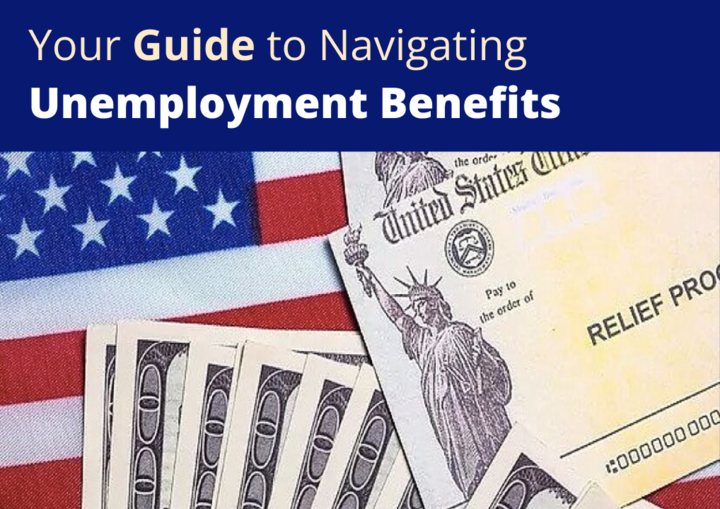Before embarking on the journey of homeownership, it is crucial to have a comprehensive understanding of your financial situation. This involves taking a close look at your income, expenses, assets, and liabilities. A thorough assessment will provide clarity on how much you can afford to spend on a home without compromising your financial stability.
Begin by gathering all relevant financial documents, including pay stubs, bank statements, and tax returns. This information will serve as the foundation for evaluating your financial health. Once you have compiled your financial data, analyze your monthly income against your regular expenses.
This includes fixed costs such as rent, utilities, and insurance, as well as variable expenses like groceries and entertainment. By creating a detailed budget, you can identify areas where you might cut back to allocate more funds toward a mortgage payment. Additionally, consider your savings and investments, as these can play a significant role in your ability to secure a mortgage and manage ongoing homeownership costs.
Key Takeaways
- Understanding your financial situation is the first step in preparing to buy a home.
- Calculating your debt-to-income ratio will help you determine how much you can afford to spend on a mortgage.
- Considering your down payment is crucial in determining the type of mortgage you can qualify for.
- Factoring in additional costs such as closing costs and home maintenance is important for budgeting.
- Researching mortgage options will help you find the best fit for your financial situation and goals.
Calculating Your Debt-to-Income Ratio
The debt-to-income (DTI) ratio is a critical metric that lenders use to assess your ability to manage monthly payments and repay debts. To calculate your DTI, divide your total monthly debt payments by your gross monthly income. This ratio provides insight into how much of your income is already committed to existing debts, which can influence your eligibility for a mortgage.
A lower DTI indicates that you have a manageable level of debt relative to your income, making you a more attractive candidate for lenders. Most lenders prefer a DTI ratio of 36% or lower, although some may allow up to 43% or even higher in certain circumstances.
If your DTI exceeds these thresholds, it may be necessary to take steps to reduce your debt before applying for a mortgage.
This could involve paying down credit card balances or consolidating loans to lower monthly payments.
Understanding your DTI not only helps you gauge your borrowing capacity but also empowers you to make informed decisions about your financial future.
Considering Your Down Payment
The down payment is one of the most significant factors in the home-buying process, as it directly impacts the size of your mortgage and monthly payments. Traditionally, a down payment of 20% of the home’s purchase price has been considered standard; however, many buyers are unaware that there are various options available that require significantly less upfront investment. For instance, some government-backed loans, such as FHA loans, allow for down payments as low as 3.5%, making homeownership more accessible for first-time buyers.
When determining how much to put down, consider not only the immediate financial implications but also how it aligns with your long-term financial goals. A larger down payment can reduce your monthly mortgage payments and eliminate private mortgage insurance (PMI), which is typically required for down payments less than 20%. Conversely, putting down a smaller amount may free up cash for other investments or emergency savings.
Weighing these options carefully will help you make an informed decision that suits your financial landscape.
Factoring in Additional Costs
Homeownership extends beyond the mortgage payment; it encompasses a variety of additional costs that can significantly impact your budget. Property taxes, homeowners insurance, and maintenance expenses are just a few examples of ongoing costs that new homeowners must consider. Property taxes can vary widely depending on location and property value, so it’s essential to research local tax rates and factor these into your overall budget.
Moreover, maintenance costs can be unpredictable but should not be overlooked. A common rule of thumb is to set aside 1% of the home’s value each year for maintenance and repairs. This fund can help cover unexpected expenses such as roof repairs or appliance replacements.
Additionally, consider the costs associated with moving and settling into a new home, including utility setup fees and potential renovations. By accounting for these additional costs upfront, you can avoid financial strain and ensure a smoother transition into homeownership.
Researching Mortgage Options
Navigating the mortgage landscape can be daunting due to the myriad of options available. Different types of mortgages cater to various financial situations and preferences. Fixed-rate mortgages offer stability with consistent monthly payments over the life of the loan, while adjustable-rate mortgages (ARMs) may start with lower rates that can fluctuate over time based on market conditions.
Understanding the nuances of each option is essential for selecting the right mortgage for your needs. In addition to traditional lenders like banks and credit unions, consider exploring alternative financing options such as online lenders or peer-to-peer lending platforms. These alternatives may offer competitive rates and unique terms that could better suit your financial situation.
Furthermore, it’s wise to shop around and obtain quotes from multiple lenders to compare interest rates and fees. This diligence can lead to significant savings over the life of the loan and ensure that you secure the best possible financing for your new home.
Consulting with a Financial Advisor
Engaging with a financial advisor can provide invaluable insights as you navigate the complexities of home buying. A qualified advisor can help you assess your financial situation holistically and offer tailored advice based on your unique circumstances. They can assist in evaluating how much house you can afford while considering other financial goals such as retirement savings or education funds for children.
Moreover, a financial advisor can help you understand the long-term implications of homeownership on your overall financial health. They can guide you through various scenarios, such as how different down payment amounts or mortgage types might affect your cash flow and net worth over time. By leveraging their expertise, you can make informed decisions that align with both your immediate housing needs and broader financial aspirations.
Setting a Realistic Budget
Establishing a realistic budget is paramount in ensuring that you do not overextend yourself financially when purchasing a home. Begin by determining how much you can comfortably afford based on your income, expenses, and savings goals. It’s essential to strike a balance between aspiration and practicality; while it may be tempting to stretch your budget for a dream home, doing so could lead to financial strain in the long run.
When setting your budget, consider not only the purchase price but also ongoing costs such as property taxes, insurance, maintenance, and utilities. A comprehensive budget will provide a clearer picture of what you can afford without jeopardizing other aspects of your financial life. Additionally, it’s wise to include a buffer for unexpected expenses or changes in income that may arise after purchasing a home.
By taking these factors into account, you can create a sustainable budget that supports both homeownership and overall financial well-being.
Assessing Long-Term Financial Goals
As you prepare for homeownership, it’s essential to assess how this decision aligns with your long-term financial goals. Homeownership is often viewed as an investment; however, it’s crucial to recognize that it comes with both risks and rewards. Consider how buying a home fits into your broader financial strategy—whether it’s building equity, generating rental income, or providing stability for your family.
Evaluate how homeownership will impact other financial objectives such as retirement savings or funding education for children. It may be necessary to adjust contributions to retirement accounts or savings plans in light of new mortgage obligations. Additionally, think about how long you plan to stay in the home; if you anticipate moving within a few years, renting might be more financially prudent than buying.
By carefully considering these long-term goals alongside the immediate benefits of homeownership, you can make decisions that foster both short-term satisfaction and long-term financial success.
FAQs
What factors determine how much house you can afford?
The amount of house you can afford is determined by factors such as your income, monthly expenses, credit score, down payment, and the current interest rates.
What is the 28/36 rule in determining how much house you can afford?
The 28/36 rule is a guideline used by lenders to determine how much house you can afford. It suggests that your monthly housing costs should not exceed 28% of your gross monthly income, and your total debt payments should not exceed 36% of your gross monthly income.
How can I calculate how much house I can afford?
To calculate how much house you can afford, you can use an online mortgage calculator or work with a financial advisor. You will need to input your income, monthly expenses, down payment amount, and current interest rates.
What are the potential risks of buying a house that is beyond what you can afford?
Buying a house that is beyond what you can afford can lead to financial strain, potential foreclosure, and damage to your credit score. It is important to carefully consider your budget and financial situation before purchasing a home.
What steps can I take to increase the amount of house I can afford?
To increase the amount of house you can afford, you can work on improving your credit score, increasing your income, reducing your monthly expenses, saving for a larger down payment, and paying off existing debt. These steps can help improve your financial situation and make it possible to afford a larger home.







